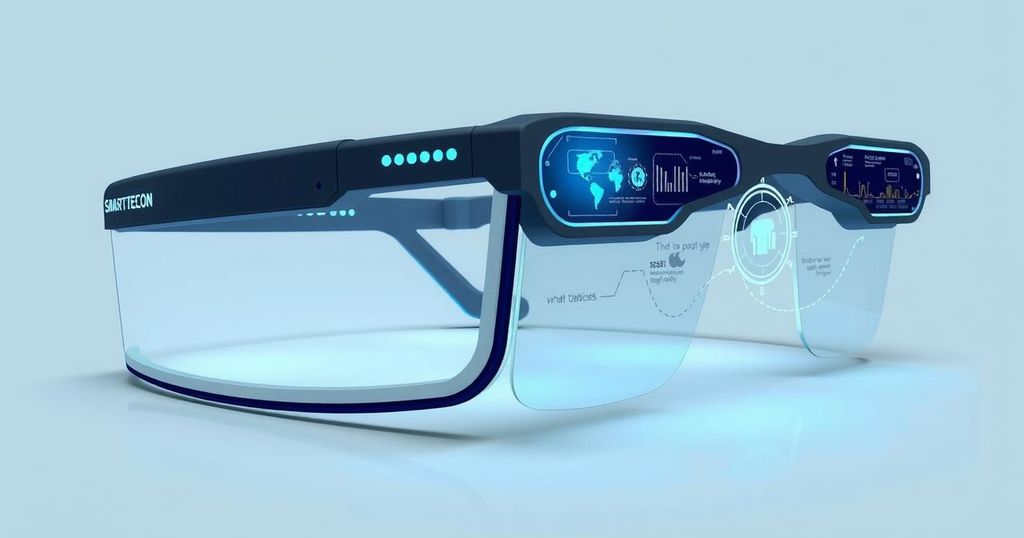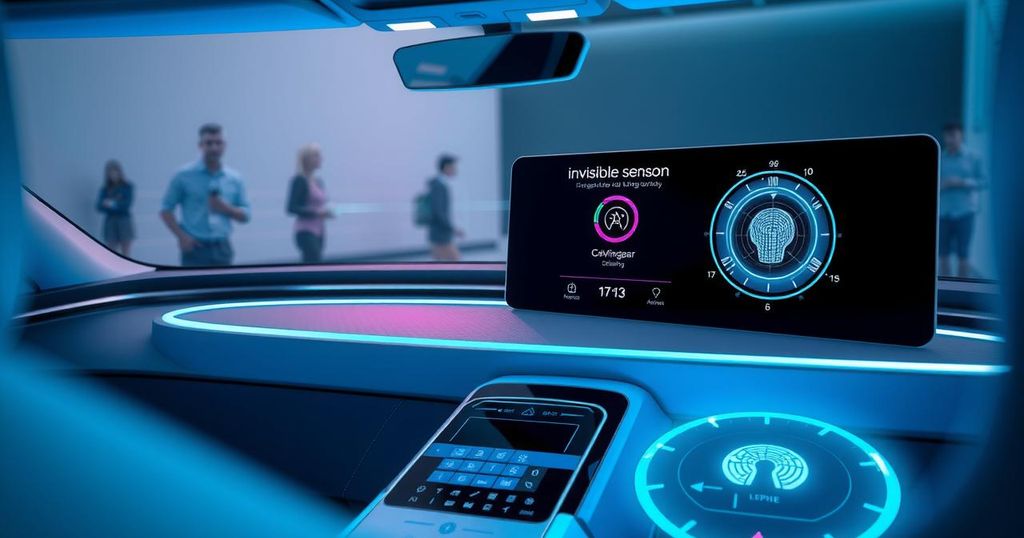Meta is considering integrating facial recognition into its smart glasses, enhancing features called “super sensing.” This would allow constant use of the devices’ cameras with AI assistance. Battery life is expected to improve, and updates to privacy policies raise concerns. The move reflects a broader trend in facial recognition technology, which is gaining traction in both consumer and law enforcement spaces.
Meta is reportedly working on adding facial recognition technology to its smart glasses, a feature they’ve dubbed ‘super sensing.’ This feature would keep the devices’ cameras and sensors continuously active, using AI to assist wearers in recalling daily encounters. For example, users could be reminded to take their keys when heading out. It’s still in the testing phase and could connect to their ‘live AI’ system, as reported by The Information.
Last year, Meta launched an AI assistant that connects with its camera-equipped Ray-Bans. The assistant is activated via the command, “Hey Meta, start live AI” and can search and play music on platforms like Spotify. Additionally, it supports automated translations for up to four languages, showcasing some pretty handy capabilities.
The company is also looking to boost battery life in these smart glasses, striving for them to handle AI functions well beyond the current half-hour limit—an upgrade that would make a significant difference for users. Expected to arrive next year, these glasses have the internal names Aperol and Bellini.
Meta’s plans around facial recognition come on the heels of an updated privacy policy that asserts the AI’s camera will remain active by default unless specifically turned off. Notably, users can no longer opt out of voice recording storage, which raises some eyebrows around privacy concerns.
This push aligns with a broader shift as the Federal Trade Commission (FTC) adopts a more lenient regulatory stance following President Trump’s administration. It seems like facial recognition glasses might be on the verge of a shift in how consumers and businesses engage with them.
Currently, the use of facial recognition in glasses has been largely confined to law enforcement, with trials in countries like China, Russia, and the UAE. Stateside, Clearview AI struck a deal with the U.S. Air Force in 2022 for similar technology. They had also signaled interest in pairing their systems with augmented reality glasses by Vuzix, according to tech reporter Kashmir Hill of the New York Times.
Consumer tech companies like Google and Facebook, however, have been cautious about facial recognition due to past legal troubles. Since a 2015 lawsuit against Facebook’s use of facial recognition for tagging, the industry has been somewhat hesitant. Conversely, companies like Clearview AI and PimEyes are making this tech increasingly commonplace.
Interestingly, in a notable incident, two Harvard students turned Meta’s smart glasses into a device for automatic facial recognition, linking captured images to online databases. Their software, called I-XRAY, streamed video to identify individuals by matching faces against internet photos and collecting personal data like phone numbers and home addresses. They aimed to spotlight the privacy implications surrounding readily available tech and its potential uses by ordinary individuals.
In summary, Meta is advancing its smart glasses technology with the potential integration of facial recognition, which has raised notable privacy concerns due to recent policy changes. As the company seeks to enhance functionality and battery life, the implications of such surveillance capabilities are worth watching closely. As we navigate this development, the conversation around ethical use and privacy rights remains crucial.
Original Source: www.biometricupdate.com





